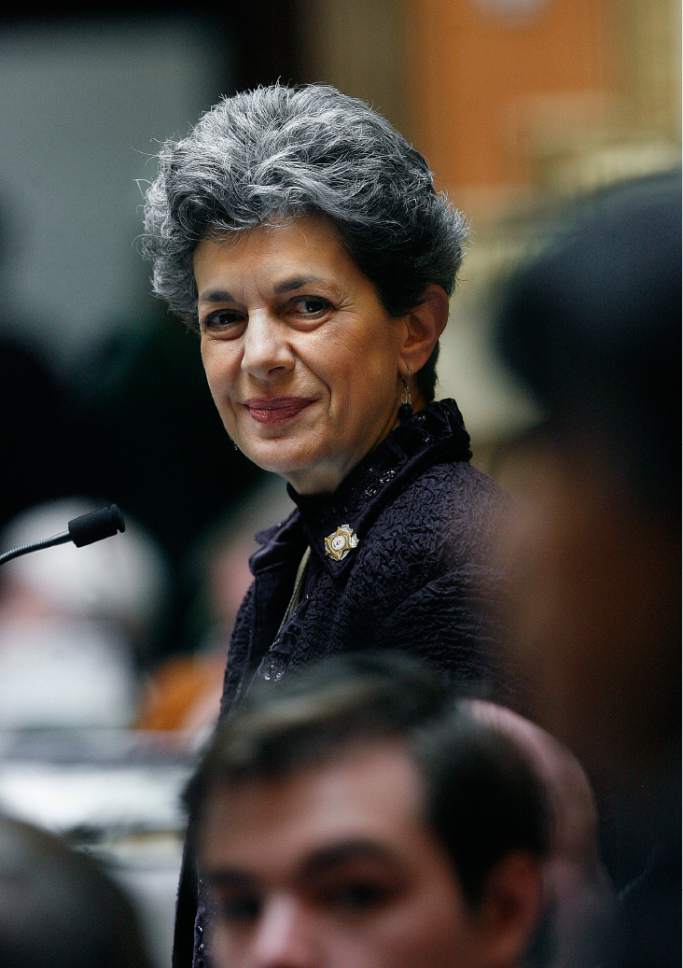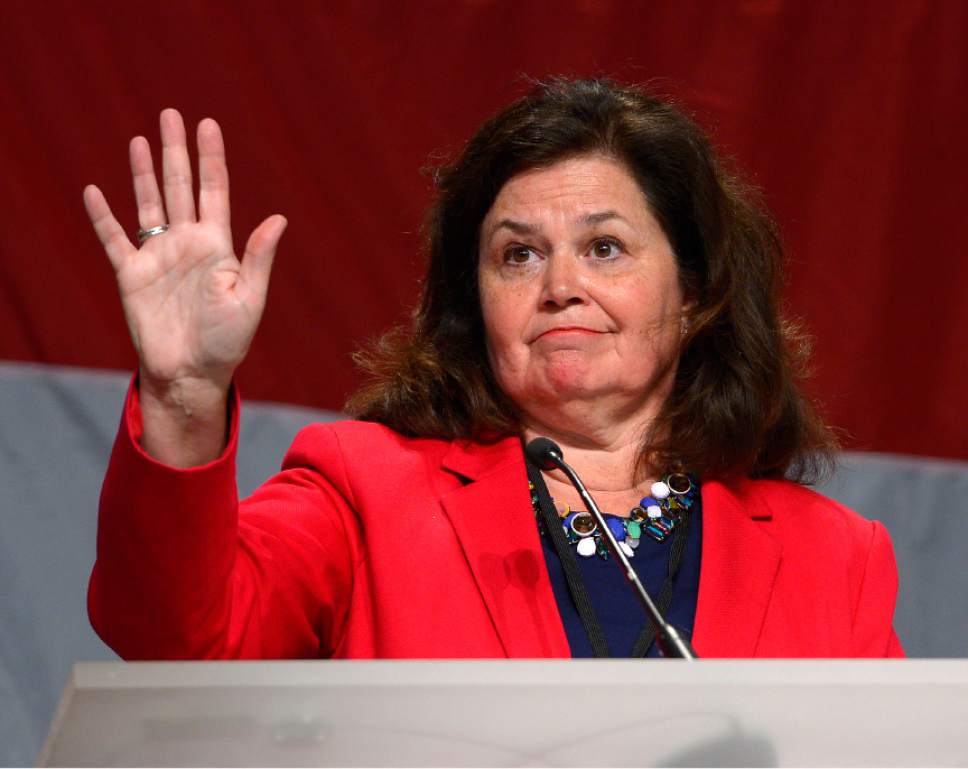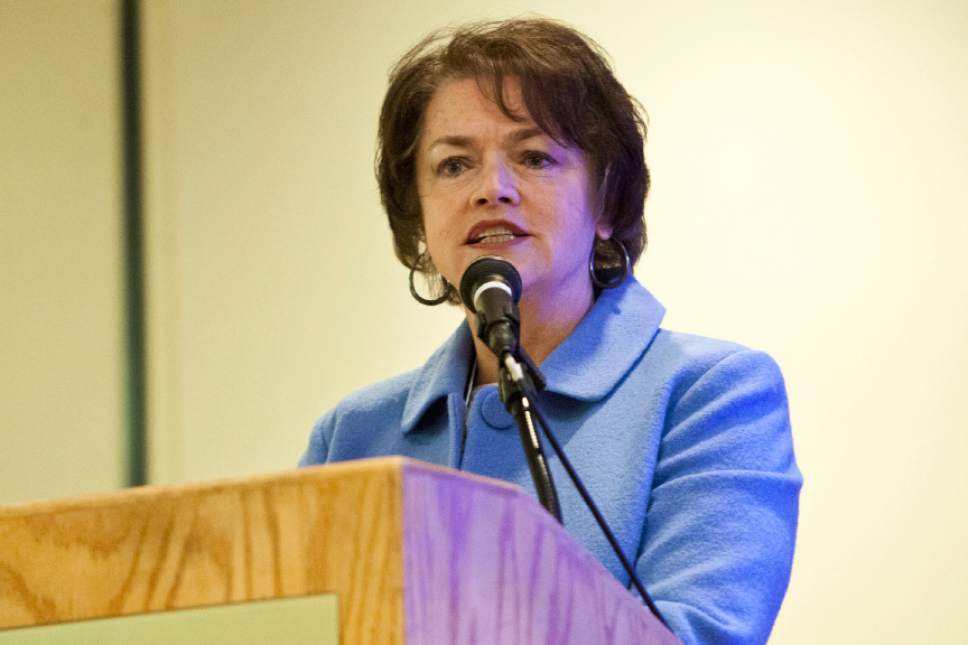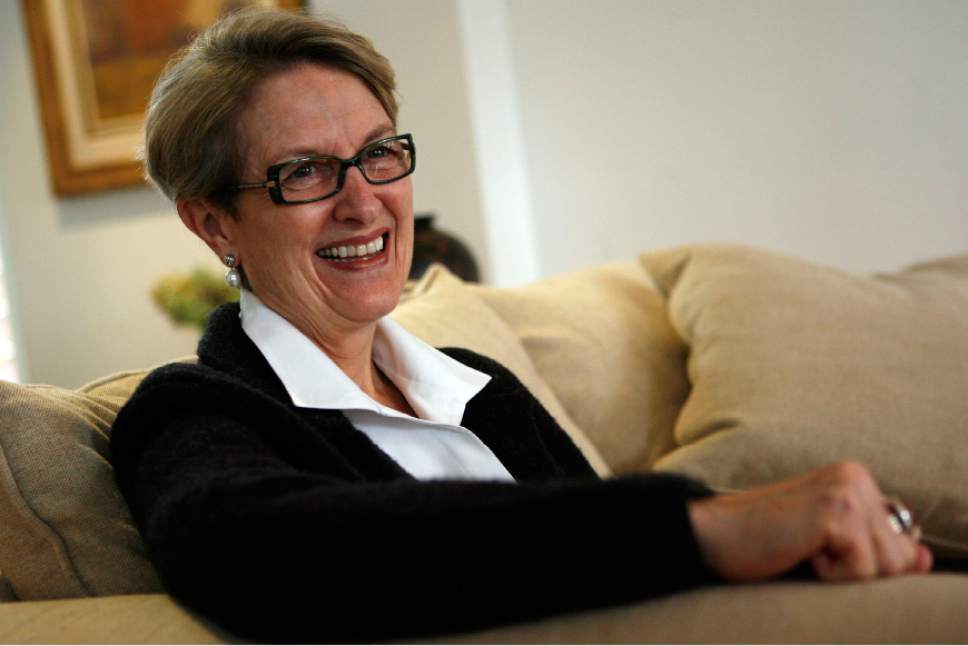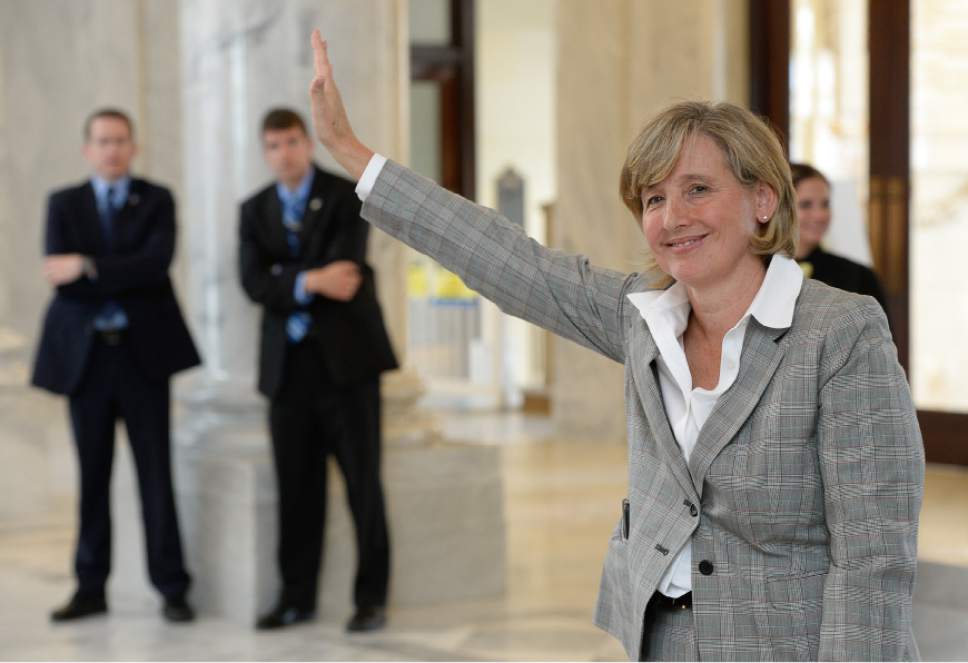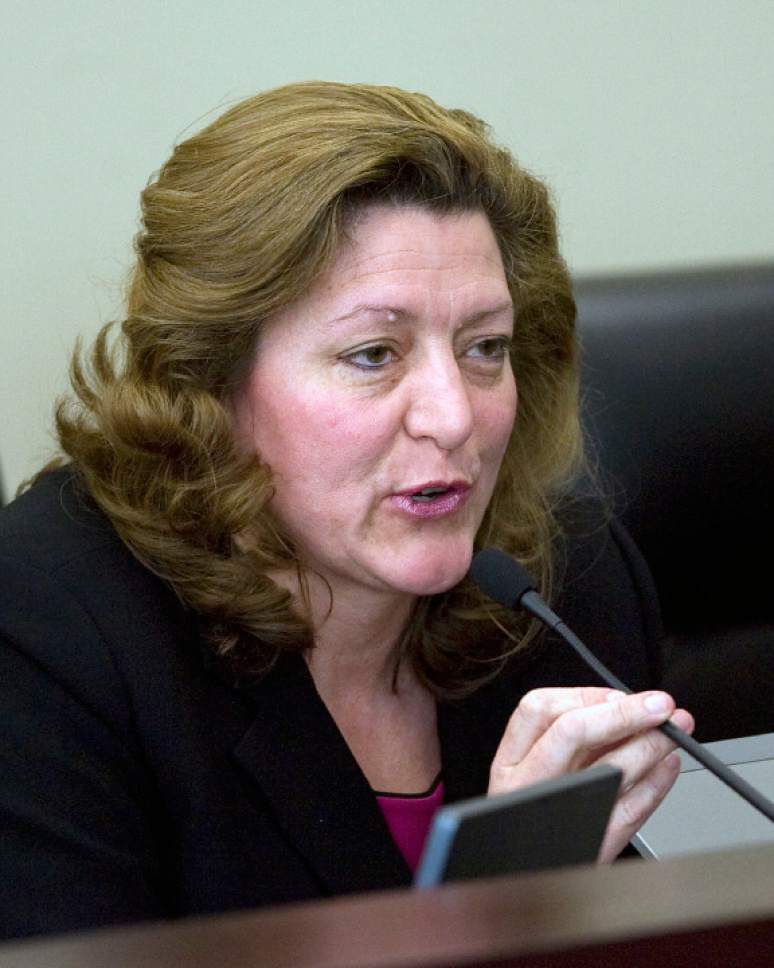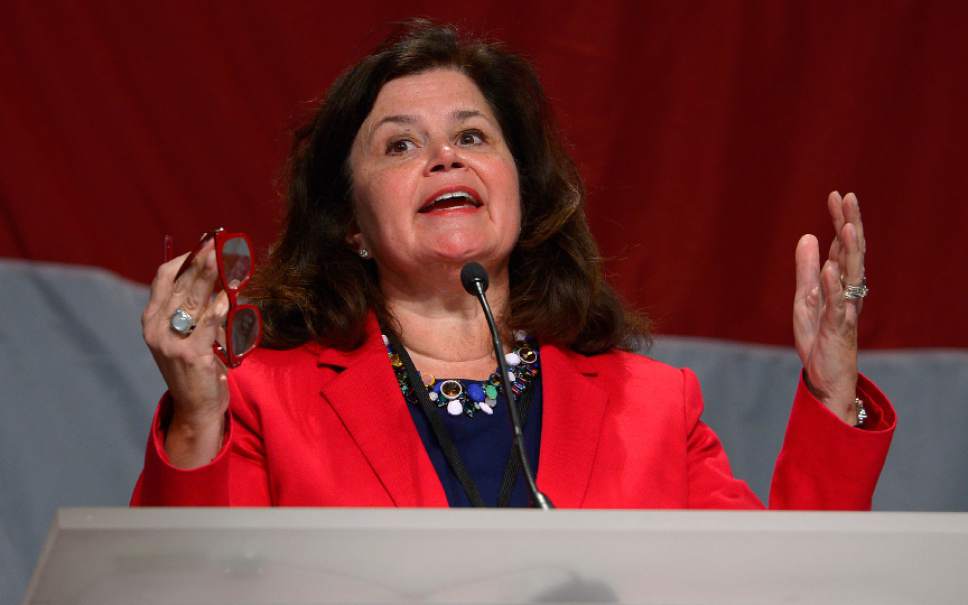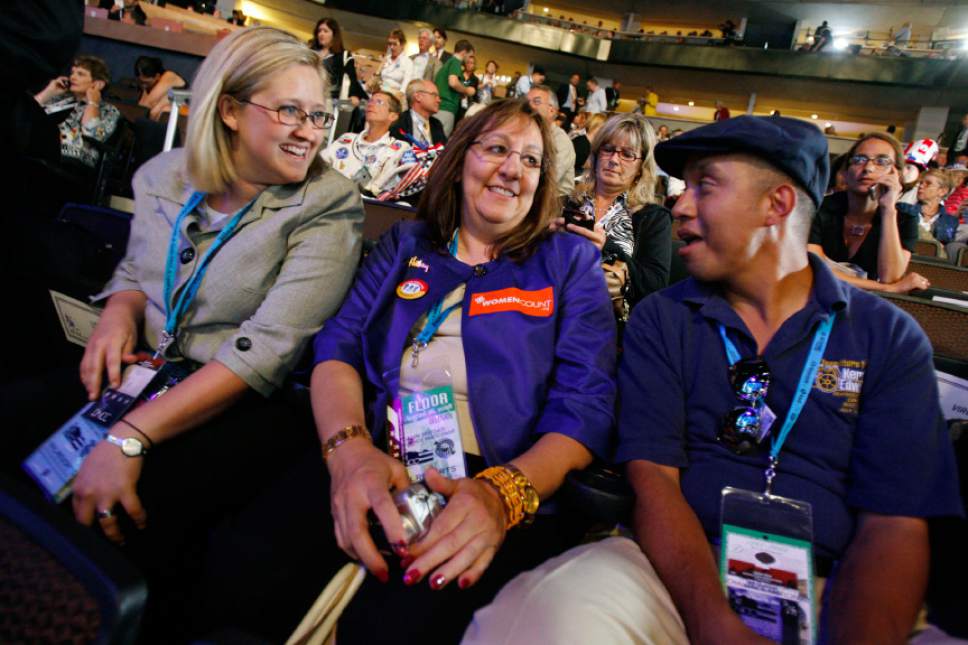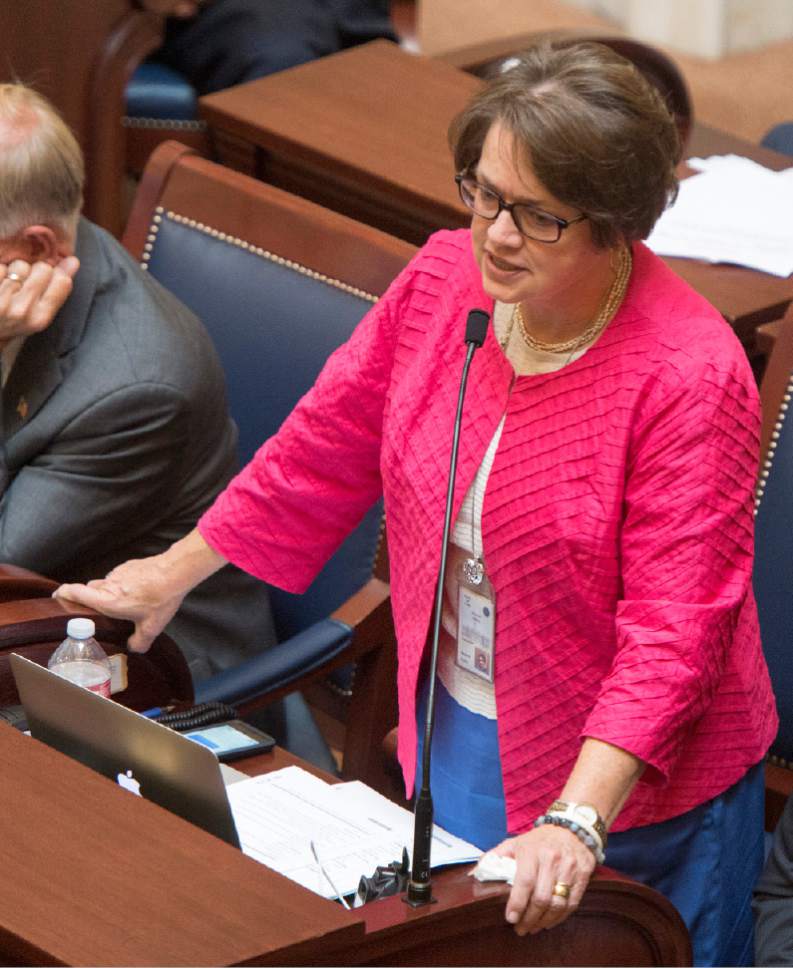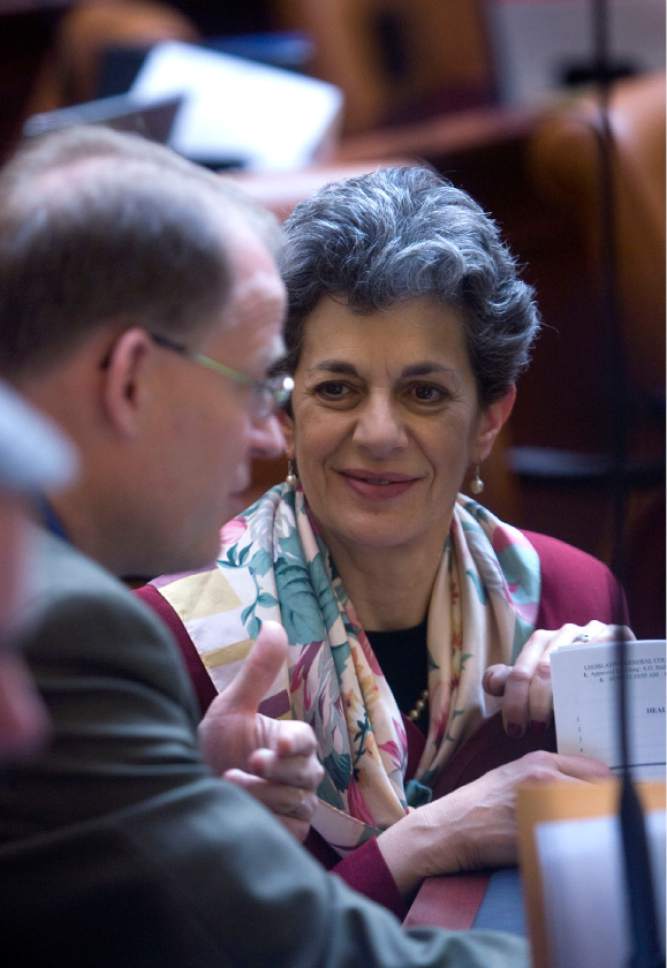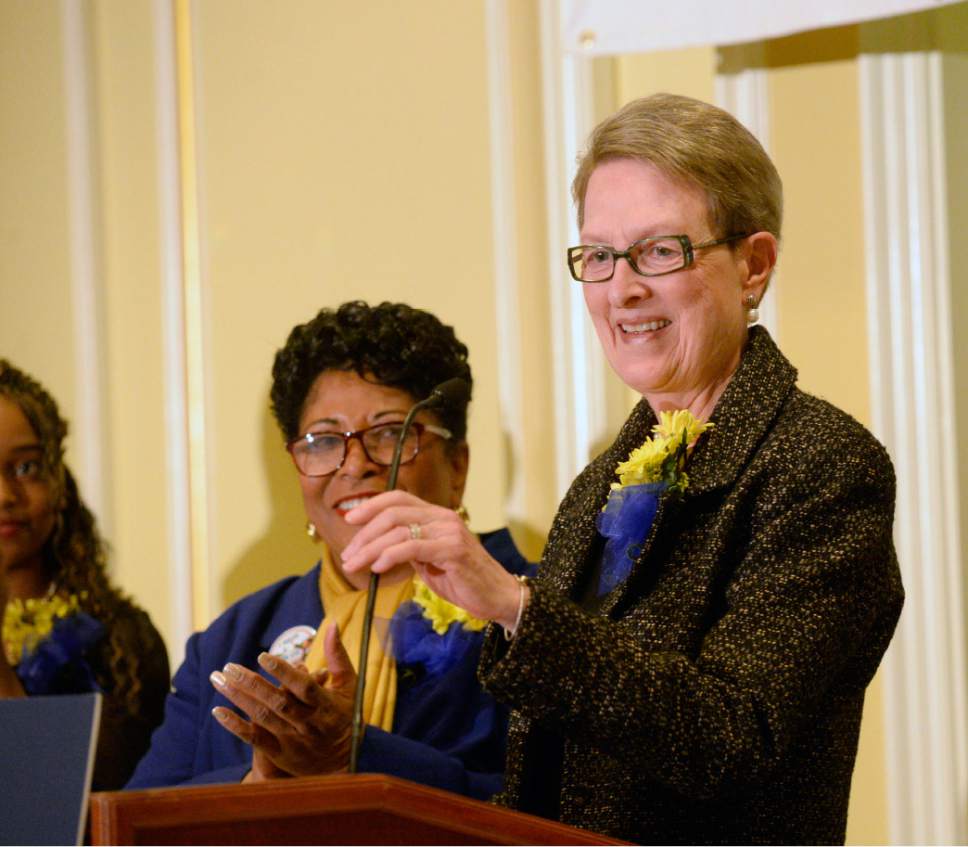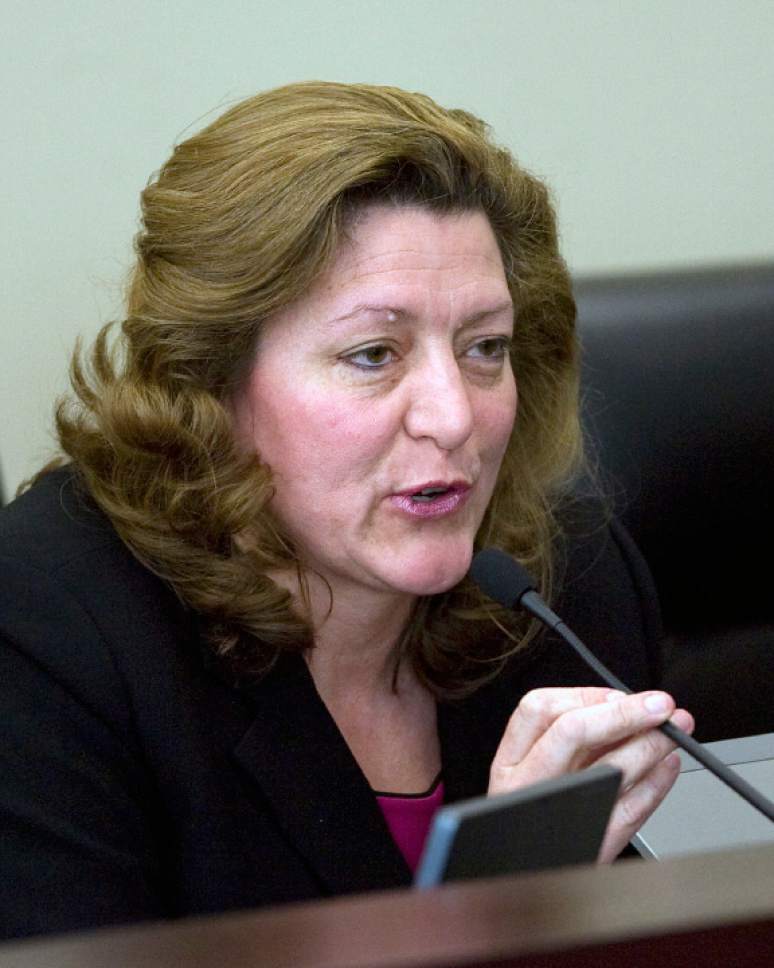This is an archived article that was published on sltrib.com in 2016, and information in the article may be outdated. It is provided only for personal research purposes and may not be reprinted.
She's historic.
At the end of a hard-fought Democratic primary, Hillary Clinton has emerged as the presumptive presidential nominee, a milestone no other woman has reached in American politics.
And that should be celebrated, say Utah's female politicians, Republicans and Democrats alike, who herald Clinton as a positive example for women everywhere, even if some of them don't like her or her policies.
"Frankly, I have bet people money it wouldn't happen in my lifetime and I'm so glad I was wrong," said Karen Shepherd, a Democrat and one-term U.S. House member from Utah who has gotten to know, respect and support Clinton. "I've spent most of my life working on women's issues, and I have a very healthy respect for how difficult it is to make headway."
Enid Mickelsen lost to Shepherd in 1992, but she defeated her in 1994 and claimed her House seat. She now serves as the state's Republican national committeewoman, working to defeat Clinton.
"The more women we see in these positions of power and authority, the more women will feel they can be involved, too," Mickelsen said. "Of course, I'm thrilled to see someone crack that bastion of what has been a male office up to this point, but I can't say that I'm happy that it is this particular woman."
Not only does Mickelsen disagree with Clinton ideologically, she said: "I disagree with her fundamentally on how she has treated other women to protect her husband and her political career."
As first lady, Clinton stood by then-President Bill Clinton through his sex scandals and impeachment. She went on to serve as a senator from New York and as secretary of state.
Mickelsen, when in Congress, famously denounced her husband for his financial frauds and deceptions.
Pat Jones, a former state senator in Utah and the CEO of the Women's Leadership Institute, knows some may not like Clinton's personal style or may criticize her decisions, but it's hard to argue with her résumé.
"The fact that she happens to be a woman, who is one of the most qualified presidential candidates we have ever had, is an added bonus to me," said Jones, a Democrat, who met Clinton and describes her as warm, engaging and smart. As for a female nominee, Jones said: "I think most women always felt it was possible, but she made it possible and I think it is a great day. ... It is really important to see what you can be."
Lisa Allcott, a Democratic activist who has supported Clinton for years, has watched young girls approach Clinton.
"They are so excited to see her. I didn't have that in my younger life," she said.
State Rep. Patrice Arent, D-Millcreek, said Clinton's political success is a sign of a maturing country.
"Witnessing the first woman presidential nominee for a major party is something I could not have imagined as a young girl growing up in Utah," said Arent, a superdelegate who has said she'll vote for Clinton at the Democratic National Convention in July. "She reflects the growth and change that our country needs moving forward."
Clinton has bested Sen. Bernie Sanders, I-Vt., according to the Associated Press count, by building a big lead in pledged delegates awarded through primaries and caucuses, like those held Tuesday in states like California and New Jersey. She also has the support of the vast majority of superdelegates, who are party leaders given the ability to back the candidate of their choice regardless of how their state votes. Sanders has not conceded and plans to court those superdelegates before the official vote at the July convention.
But unless something unexpected happens, Clinton will face Donald Trump, the presumptive Republican nominee, in the general election.
That puts Republicans like Natalie Gochnour and Holly Richardson in a tough spot.
Gochnour, director of the Kem Gardner Policy Institute at the University of Utah, calls Clinton "competent" and "eminently qualified."
"I think that women of all backgrounds and ages can respect her about that," she said. And yet, she doesn't support Clinton's more liberal policies and argues that this candidate has operated "more like a political machine than a public servant" for decades. Gochnour points to the scandal over Clinton's use of private email while leading the State Department as an example.
She won't vote for Clinton, but she also can't vote for Trump, saying, "His behavior, his temperament, his policies, I find deeply offensive."
She's hoping a third option emerges before she has to cast her ballot, but given just those two options, she'd be more comfortable with Clinton in the White House.
"I think she's got a lot of qualities that would make her a successful president; I just don't agree with her on a lot of things," Gochnour said.
Richardson, a former state House member, also laments her presidential options and would be less alarmed with a President Clinton than a President Trump.
"I cannot cast my vote for someone who I think is a racist, for someone who I think is a misogynist, for someone who I think is a bully and who wants to impose his will by mandate," she said of Trump.
Her plan is to write in Mitt Romney for president.
While she might not like her options, Richardson appreciates the history being made.
"Overall, I think it is great. Every time there is a first, it is always worth recognizing it," she said. "But in Utah, she's not going to be as popular as she will be in other places."
State Sen. Margaret Dayton, R-Orem, sees no reason to "rejoice" that a woman is expected to win a major party nomination — she thinks gender shouldn't matter when it comes to politics.
"I'm far more concerned about the political compass of a nominee than the gender," said Dayton, who worries that Clinton will use her gender as a shield against criticism of her policies.
But Richardson disagrees, saying gender does matter. She argues that women are underrepresented among elected officials, especially on the Republican side, and that leaves an incomplete political debate. Out of Utah's 104 state lawmakers, there are 16 women. Among Utah's six members of Congress, Rep. Mia Love is the only female.
"Women bring something to the table that is missing," Richardson said. "We bring a different point of view, a different life experience."
And while Clinton may not be the role model she wanted, Richardson said she is still an important role model.
"For women, it is good to see that there can be women who can go all the way to the very top."


